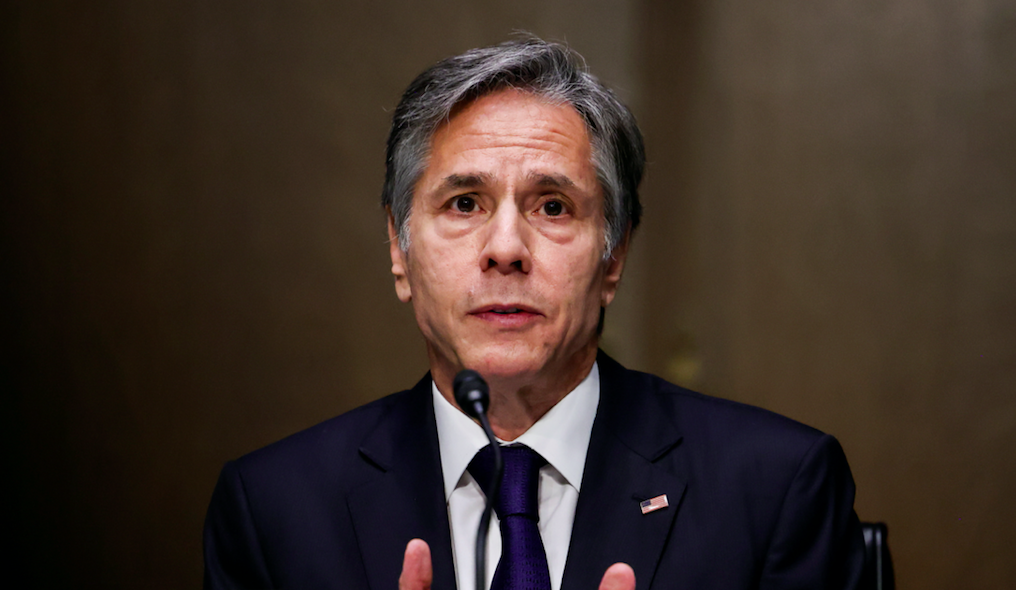New Delhi: A day after United States’ secretary of state Anthony Blinken spoke of “rising attacks on people and places of worship” in India, India on Friday, June 3, hit back, accusing the US of indulging in “votebank politics” in international relations.
The Indian response also included that it had regularly raised “concern” over “racially and ethnically motivated attacks, hate crimes and gun violence” in the US.
On Thursday, June 2, Blinken noted that “in India, the world’s largest democracy and home to a great diversity of faiths, we have seen rising attacks on people and places of worship”. He was speaking at an event organised for releasing the state department’s annual report on international religious freedom (IRF).
Blinken was followed by the US ambassador at large for IRF, Rashad Hussain, underlining that Blinken had singled out India as “some officials are ignoring or even supporting rising attacks on people and places of worship”.
This was the first time in recent memory that a US secretary of state had mentioned India in oral introductory remarks delivered at such an event. Blinken had brought up India’s human rights record publicly in April too.
In a strongly-worded response, the spokesperson of the Ministry of External Affairs (MEA), Arindam Bagchi, said that India had taken note of the “ill-informed comments by senior US officials”, calling it a direct attack.
“It is unfortunate that vote bank politics is being practiced in international relations. We would urge that assessments based on motivated inputs and biased views be avoided,” he said.
He also claimed that as a “naturally pluralistic society, India values religious freedom and human rights.”
The MEA spokesperson also revealed for the first time that India had brought up issues related to gun violence with the United States, which is perhaps the only developed liberal democracy that witnesses frequent mass shootings.
“In our discussions with the US, we have regularly highlighted issues of concern there, including racially and ethnically motivated attacks, hate crimes and gun violence,” said Bagchi.
Last month, China also brought up gun violence in the United States at the time of UN human rights chief Michelle Bachelet’s trip to Beijing where there was an expectation that the Chinese human rights record in Xinjiang would be under scrutiny.
The Chinese foreign ministry and state media have also routinely spoken about the US human rights record, especially related to racism and gun violence.
The Indian foreign ministry spokesperson’s remarks also mirrored the words of the Indian external affairs minister S. Jaishankar in April.
Less than two months ago, Blinken had declared that the US was monitoring the “rise in human rights abuses by some government, police and prison officials” at a joint press briefing with US Defense Secretary Lloyd Austin, Indian defence minister Rajnath Singh and Jaishankar in Washington.
“We regularly engage with our Indian partners on these shared values (of human rights) and to that end, we are monitoring some recent concerning developments in India including a rise in human rights abuses by some government, police and prison officials,” he had said in a rare direct rebuke.
While neither Jaishankar nor Singh commented on these remarks at the press briefing, Jaishankar retorted two days later that India also had concerns about the human rights situation in the United States and had talked about “lobbies” and “votebanks”.
“Look, people are entitled to have views about us. But we are also equally entitled to have views about their views and about the interests, and the lobbies and the vote banks which drive that. So, whenever there is a discussion, I can tell you that we will not be reticent about speaking out,” he said.
There has been no clarity from the Indian side on the allusion to “vote banks” in the official response. The Biden administration, which is formed by the US democrats, had always campaigned on the platform of advancing human rights and democracy through foreign policy, including during the 2020 presidential campaign.
The Indian government has also consistently claimed that there is bipartisan support for bilateral ties in the United States.
































